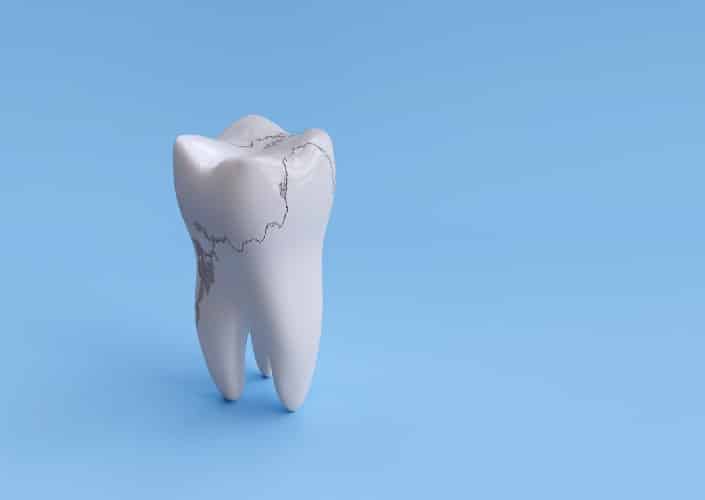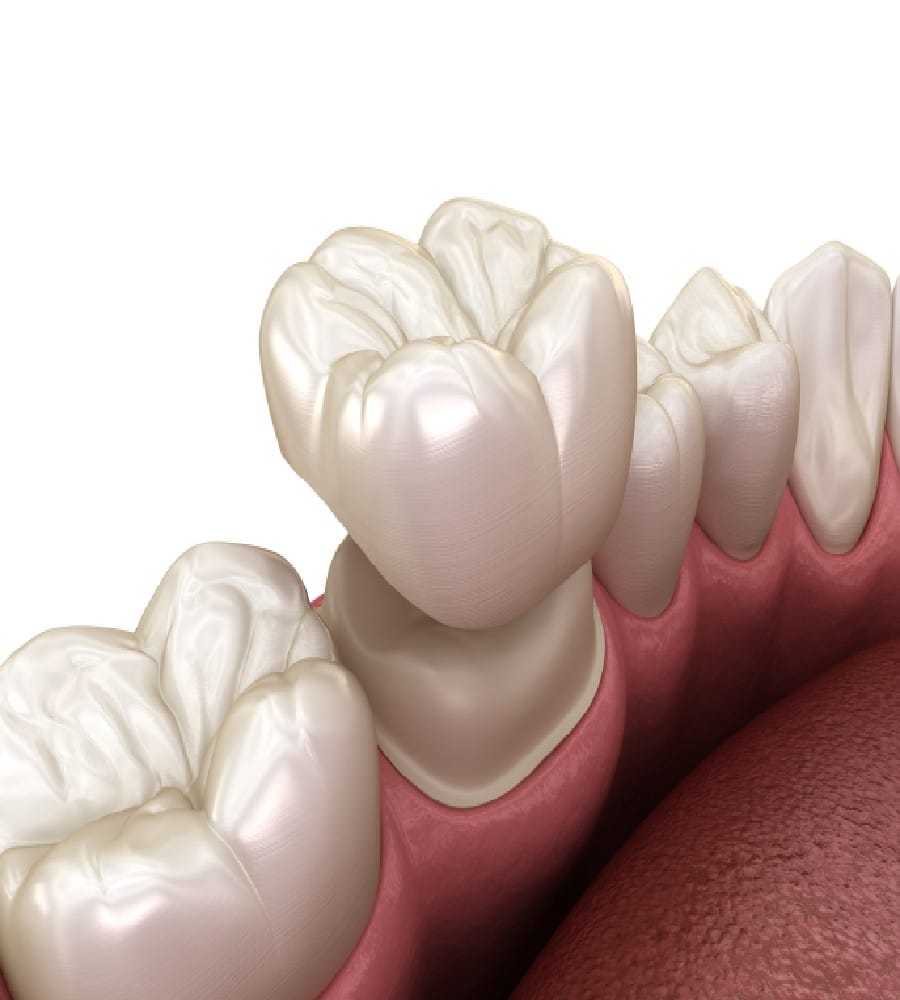Why Do Teeth Break?
Although oftentimes the case is general tooth decay, there’s a variety of reasons your teeth might weaken, crack, or break. Old fillings deteriorating over time, grinding your teeth at night, over- and under-bites causing uneven stress on teeth, and aging all contribute to the slow weakening of your teeth. Sometimes, dental trauma (like falling or being hit) will instantly cause a crack or break — consult one of our emergency dentists immediately if this happens to you.


When Are Dental Crowns Used?
Depending on the severity of the crack or break, conditions on the surface of your existing tooth and its surrounding teeth, and previous dental applications, one of our staff may prescribe the use of crowns to restore your smile.
In the event that an old filling has decayed and fallen out and the resulting cavity is too large to simply replace the filling — and the root is still healthy and intact — your dentist will likely recommend a crown to cover these damages.
If the surrounding teeth are intact and stable, crowns can even be used to replace an entire missing tooth by creating a dental bridge. Basically, this entails a crown being suspended and secured between two other crowns affixed to the top of your healthy teeth. However, a dental implant may be recommended as bridges often requires grinding down the healthy, adjacent teeth in order to properly secure the bridge.
Uses for Dental Crowns
7 Uses for Dental Crowns
- To protect a weakened tooth from breaking
- To bind broken pieces of a tooth
- To cover a large filling where most of the tooth has decayed
- To cover a dental implant
- To make a cosmetic fix (chipped tooth, etc)
- To correct discoloration and misshapen teeth.
Materials Available for Crowns
- Stainless steel
- Metal
- Composite (metal, resin, and ceramic combinations)
- All-resin
- All-ceramic or all-porcelain
- Zirconia

What Is The Process For Inserting A Crown?
Getting your crown placed will typically involve two appointments at our dental office in Midtown.
At your first visit, the dentist reviews a full mouth series of x-rays to determine your gum condition, root stability, and any hidden cracks in your teeth. After comfortably numbering the area with a local anesthetic, your dentist carefully reshapes your tooth for the proper fitting of a crown. If a significant portion of your tooth is missing, your dentist uses a bonded resin to add critical support under your crown.
Next, your dentist takes an impression of the reshaped tooth and the teeth that bite against it. We send these impressions to a lab so they can craft your new crown. We make a temporary crown that’s cemented over your prepared tooth.
In 2-3 weeks, you return for your second visit and your new crown. After removing your temporary crown, we check the fit and appearance of your permanent crown. Within a few minutes, your new crown is cemented, and you’re ready to enjoy it right away!



